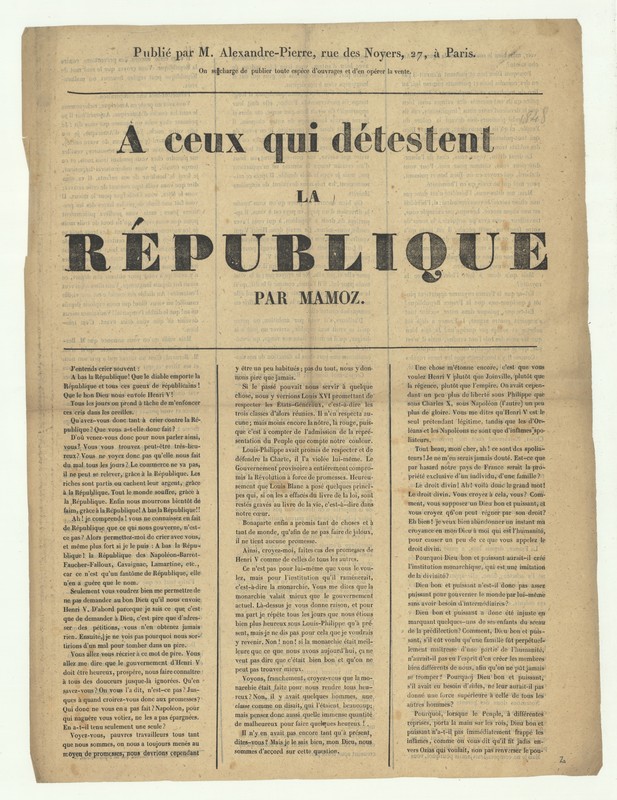Republicanism: Radicals and Realists
“La France est à nous, à nous tous." At the heart of the French Republican movement of 1848 was a philosophical debate over to whom France belonged; for the Republicans, the unequivocal answer was that she belonged to her people. In their political campaigns, they sought to at once expose the corrupt tyranny of monarchy while expounding the moral righteousness of republicanism. The Republicans railed against anachronistic institutions and oppressive conditions, and called for wide-ranging reforms. In the posters below are captured the fears, hopes, demands, and dreams of people who knew that while they could not create a perfect nation, they could at least save it from greater evils: "J’accepte franchement la République et toutes ses conséquences” — “I accept the Republic and all its consequences”.



